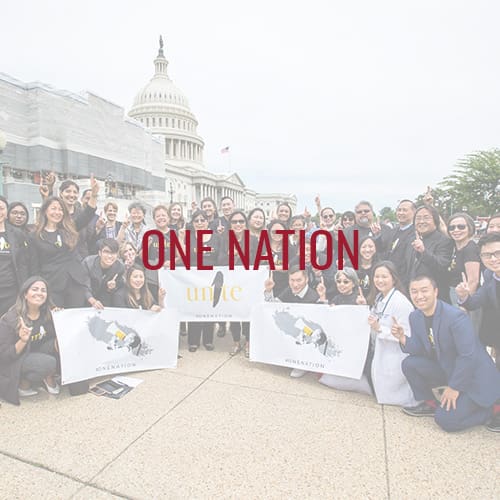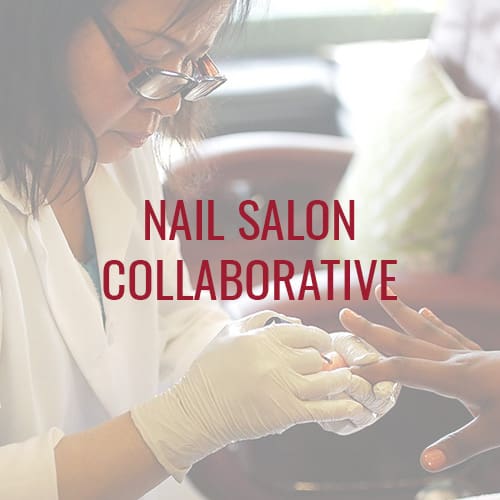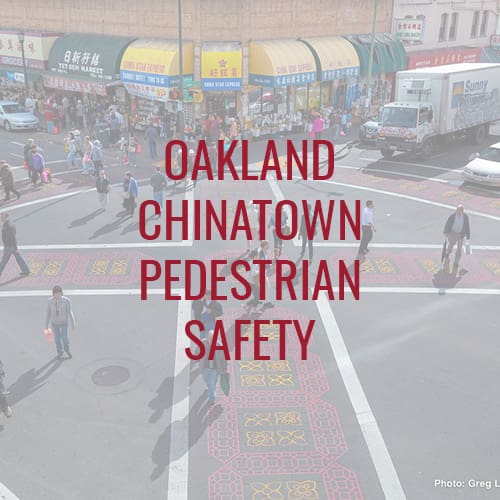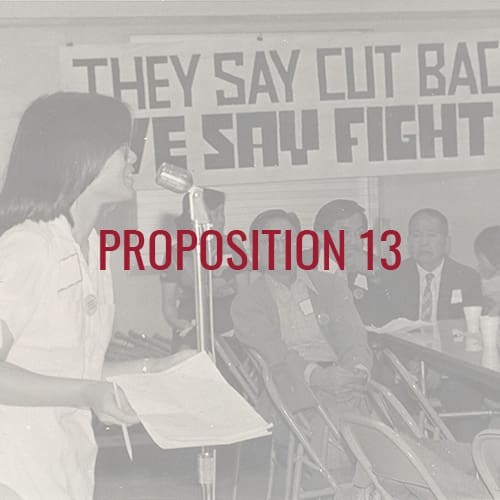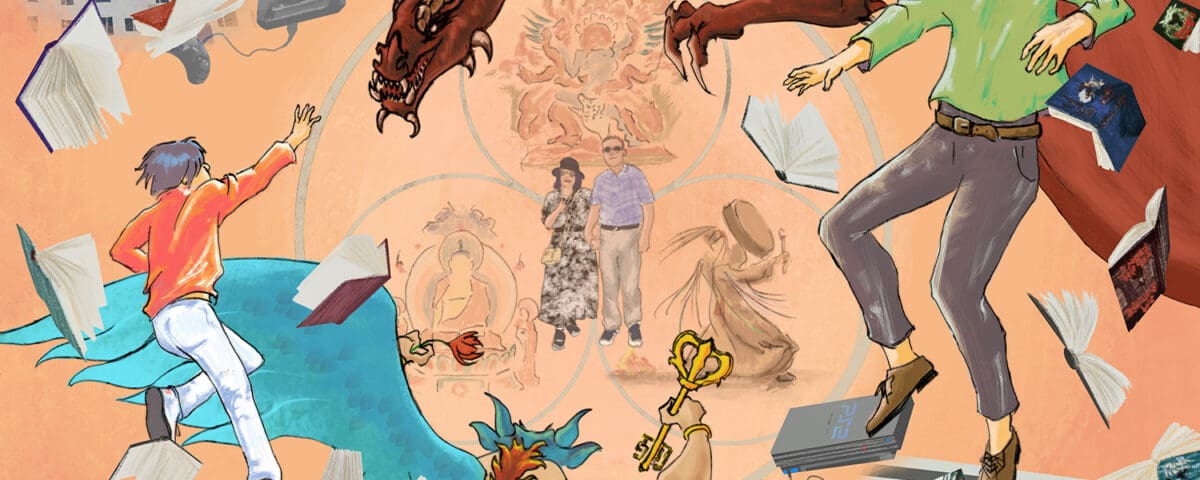
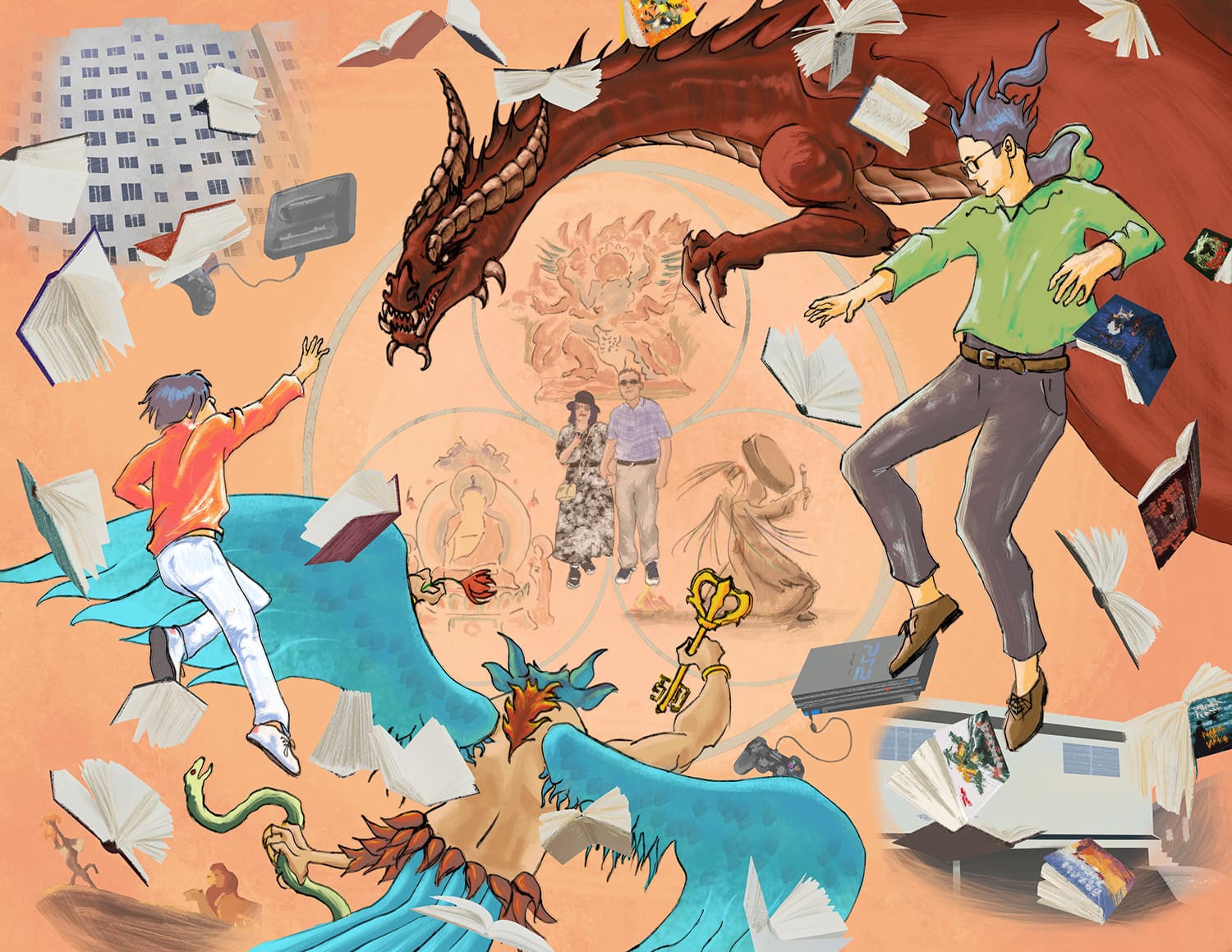
Bobby
Bobby’s world changed completely at 13, when he moved from Ulaanbaatar to East Oakland. As one of only two Mongolian students at his school, he found comfort and inspiration in books, manga, movies, and video games—igniting a lifelong passion for visual storytelling.
ROOTS & BEGINNINGS
Interviewer: Tell us about where you grew up?
Bobby: I was born and raised in Mongolia. I [remember once] when I was walking with my dad, we went to get a rental of the movie The Lion King…I watched it probably 1,000 times and it was still in original English language. I couldn’t understand everything, but my love of animation and storytelling was pretty apparent from there on.
Interviewer: Could you describe your neighborhood growing up?
Bobby: Yeah, we lived in this like nine story housing that most Mongolians lived in at the time, lived in sixth floor and yeah, and it was pretty typical middle ish income place, yeah. So, you know, stayed out most of the time. Just hang out with the neighbor kids, and we were very close with our neighbors. In the early 90s, Mongolia was just coming out of communism, and lot of the buildings there were built with, you know, like, Russian engineering, I guess you could say, but country was just opening up, and lot of people were going out. And we had, like, schools and stores nearby.
Interview: What year did you move to America? And what was that experience like?
Bobby: 2002. That was pretty cool, because my parents came here before me for about a year. I lived back in Mongolia with my aunt and her husband. And coming here after one year, I was just excited to see my parents. It was a culture shock, to be fair. I didn’t know any English. Knew a few words, so it was fun coming here, just driving around, watching the city, San Francisco and everything.
Interview: So when you came here, you came straight to the Bay Area.
Bobby: When I first came, we lived in East Oakland. Not the friendliest space, but it was home back then.
Interview: Were you still in school when you came?
Bobby: Yeah, I was finishing my seventh grade in Mongolia, and came here, went straight to high school.
Interview: How is school different in Mongolia compared to here?
Bobby: I thought it was pretty lax coming here, yeah, because Mongolian schools are pretty strict. They thought it was best for me to get like, easy subjects like math, PE, art and all that. Then the first year, obviously, because I didn’t know English, so I thought the math was like high school level math. So I was disappointed. School was different in a way. Mongolia, we have classroom and teachers come and go, so all the classmates are together as friends. I’m sure it’s different now, but, yeah, we, I moved a lot of schools, but a lot of the students there go through like 10 years together, so they become really close. Here it was just everyone scrambling to get to different classes after each class, and it was hard making friends.
FINDING COMMUNITY
Interviewer: What city do you currently live in?
Bobby: Well, I came here and moved to Alameda, like after one year from Oakland, and it was just home. Yeah, I went to university in San Jose, and just all of my friends and family was here. So just made sense to be here, to be close to them.
Interviewer: Where’s a neighborhood or place around you that makes you feel safe for a space of community?
Bobby: I would walk around the South Shore center sometimes, and just walk above the beach. But, yeah, I mean, just smells like the sea.
Interviewer: Were there any experiences when you came to America that made you feel at home or like you belonged or didn’t belong, like made you feel different in any way?
Bobby: Yeah, I guess in the early 2000s like, I was one of two Mongolian in the whole school. And literally, like, some of my friends were like, hey, Mongolian, and it was me, like, there was no one else. So, yeah, it was a little hard to connect with people when you don’t know the language, when you don’t know anyone who can speak the same language, but I did get closer to that one mother, Mongolian. We were both freshmen, I think, yeah. So it wasn’t all to that, but it was little tough to be part of other groups. Yeah, and I didn’t know any like, I didn’t know any other like, after school stuff were happening at all throughout whole high school, so I wasn’t part of any like sports team or anything, which I wish I could have been part of, had I known.
Interviewer: Are there any groups or anything now that make you feel like more of a feeling of togetherness or kind of like part of a community in the Bay Area?
Bobby: Now I just have very close few friends, and usually hang out with them, but there are a few places that I do feel at ease. I guess one is figure drawing sessions. I did major in art, arts field. So go in there. I can talk to people who have similar interests and going on a similar path, and otherwise and do a little bit of rock climbing. And rock climbing, it can be pretty fun.
AHS + HEALTH
Interviewer: What does good health mean to you?
Bobby: I do tend to be careful most of the time. I wouldn’t say extreme, but, you know, I had a COVID Last July, and, like, isolated myself from everyone, like, and I just, like, kind of extreme measures. I was, like, wearing masks, closing doors in my room and, like, it was just Yeah, and everyone thought it was being excessive. But I was like, Okay, try not to infect any of you guys. But being healthy, I guess, just. Means trying to have a healthy lifestyle, eat well, try not to get any diseases and virus and whatever is out there. But, you know, having no major complication, I guess, would be the best no news from doctors. The best news, yeah.
Interviewer: How has AHS helped in maintaining good help and your healing process and or healing
Bobby: Process? Yeah, my primary care doctor, she’s very direct, but she’s, she’s very caring. So she asked her, like, hey, if this is wrong. And she’s like, Hey, from my experience, it’s not that serious. That’s usually how my, most of my conversation with her goes. And, yeah. I mean, yeah, she, she takes care of me, so I have no worries.
Interviewer: Um, do you have other family members who use Asian Health Services too? Or is that just you?
Bobby: Yeah, my dad goes to Frank young um.
Interviewer: In what ways has Asian Health Services help support your family?
Bobby: Well, it’s very helpful for my parents.
Interviewer: What impact does having culturally attuned healthcare have on your family?
Bobby: It was very awesome to not need to come to every appointment with my parents. Having an interpreter on the phone was very helpful. Only problem we did face was when the translator came in late, and sometimes I would sit with my parents and he or she would translate and do a poor job. I’m like, I could do much better. But at the same time, I don’t know some of the medical terms, so a few of the times, doctors would say, “We need to go through proper translating channels,” and they would try to do a phone call, and it would take a while. But overall, it’s been positive.
Interviewer: Can I ask you why you think communication resources are important based on your personal experience, but also for a Community. Why do you think linguistic understanding is important?
Bobby: No, I guess I would say, When my parents first started going through medical applications and all that, I didn’t fully know exactly like how to do all the research and everything. And there was this one Mongolian lady who worked in the Frank Kiang clinic. And she was very helpful. She was like, hey, you need to bring this and that, you know, just do this part, do this part. I think back then I was like, if she could be everywhere, that’d be great. But, yeah, having in person help that we can communicate with was very helpful.
Interviewer: Last question, what is one health advice you follow that was taught from your elders?
Bobby: From my elders–I do this every day now. Every morning I drink warm to hot water. Every morning, as soon as I wake up. That’s that’s been pretty helpful to me.
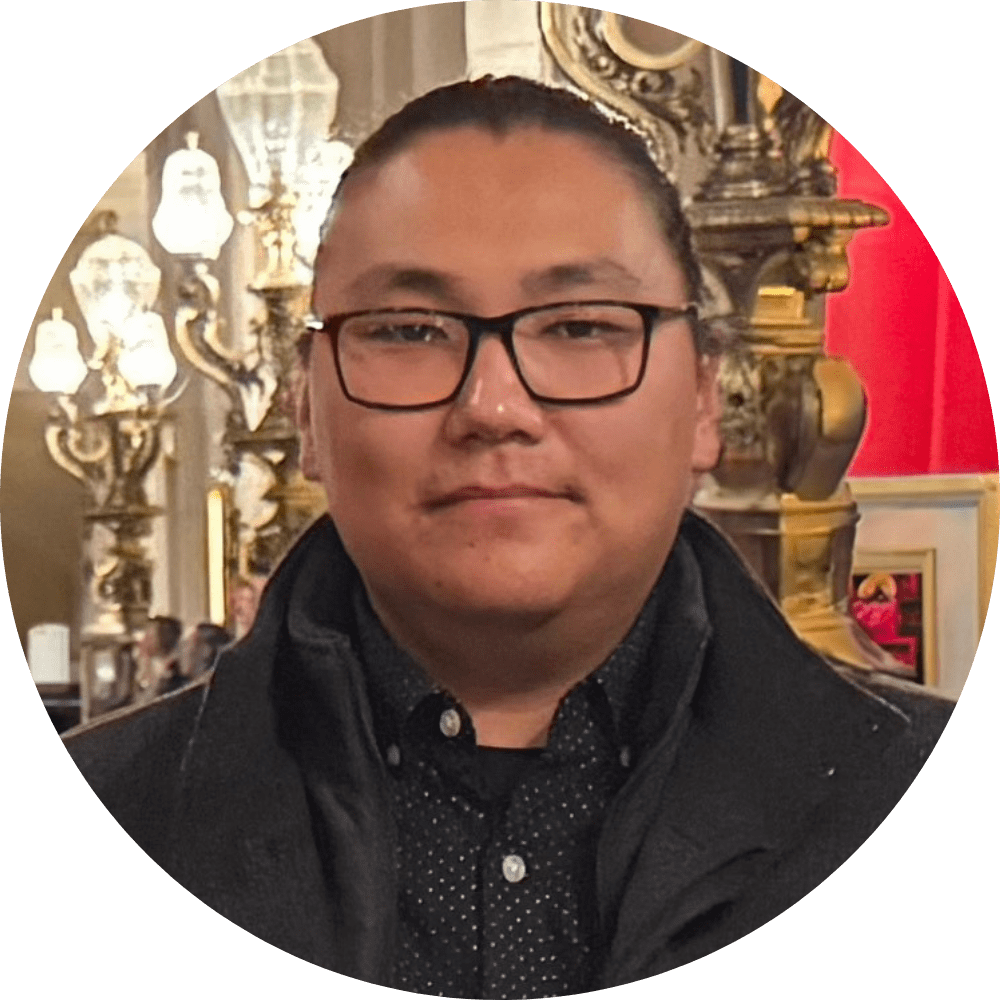
Billy Luvsankhuu
Billy Luvsankhuu is a Mongolian-born artist based in Alameda, California.

